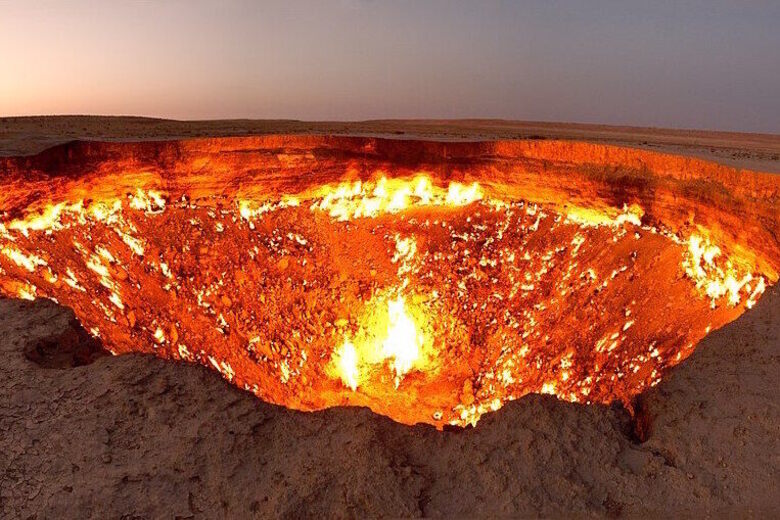
The Gates of Hell is soon closing. Here’s all you need to know about why Turkmenistan’s president is set to close the nation’s most recognized site.
The Gates of Hell are closing: Here’s why
Gurbanguly Berdymukhamedov, the president of Turkmenistan has reportedly ordered the closure of the Gates of Hell. Officially known as Darvaza carter, it formed in the early 1970s due to a collapse of land in a Soviet gas drilling expedition. Scientists lit the massive hole for preventing the spread of natural gas. Ever since the Gates of Hell have been burning. The site soon became a tourist attraction, attracting people from across the globe. However, Berdymukhamedov reportedly ordered for finding a way to close the gates according to Neytralny Turkmenistan, a state-run newspaper.
According to reports, there are several reasons for extinguishing the famous flames. It includes environmental damage and wasting valuable resources. Additionally, it has negative effects on people who live nearby. After all, natural gas is one of the nation’s primary income sources. According to the paper, the deputy prime minister “was instructed to gather scientists, and if necessary to attract foreign consultants and find a solution for extinguishing the fire”.
When is it closing? How will it affect tourism?
Currently, there is no known deadline for putting out the eternal flames. However, Berdymukhamedov is famous for his love of architecture. He has been the nation’s president since 2006 and has been on a building spree since then. However, the main focus is around Ashgabat, the capital with several monuments, giant government buildings, and other architectural marvels. The president being a dog lover has also built a giant golden statue of a Turkmen shepherd dog, his favorite breed and national symbol.
Turkmenistan‘s tourism industry is relatively small. The nation’s annual foreign visitors have been low even before the pandemic, attracting a few tens of thousands of visitors every year. Hence, the effect of closing the Gates of Hell on tourism might be negligible. Additionally, according to the World Press Freedom Index by Reporters Without Borders, the nation ranks 178 out of 180 countries in world media censorship.
